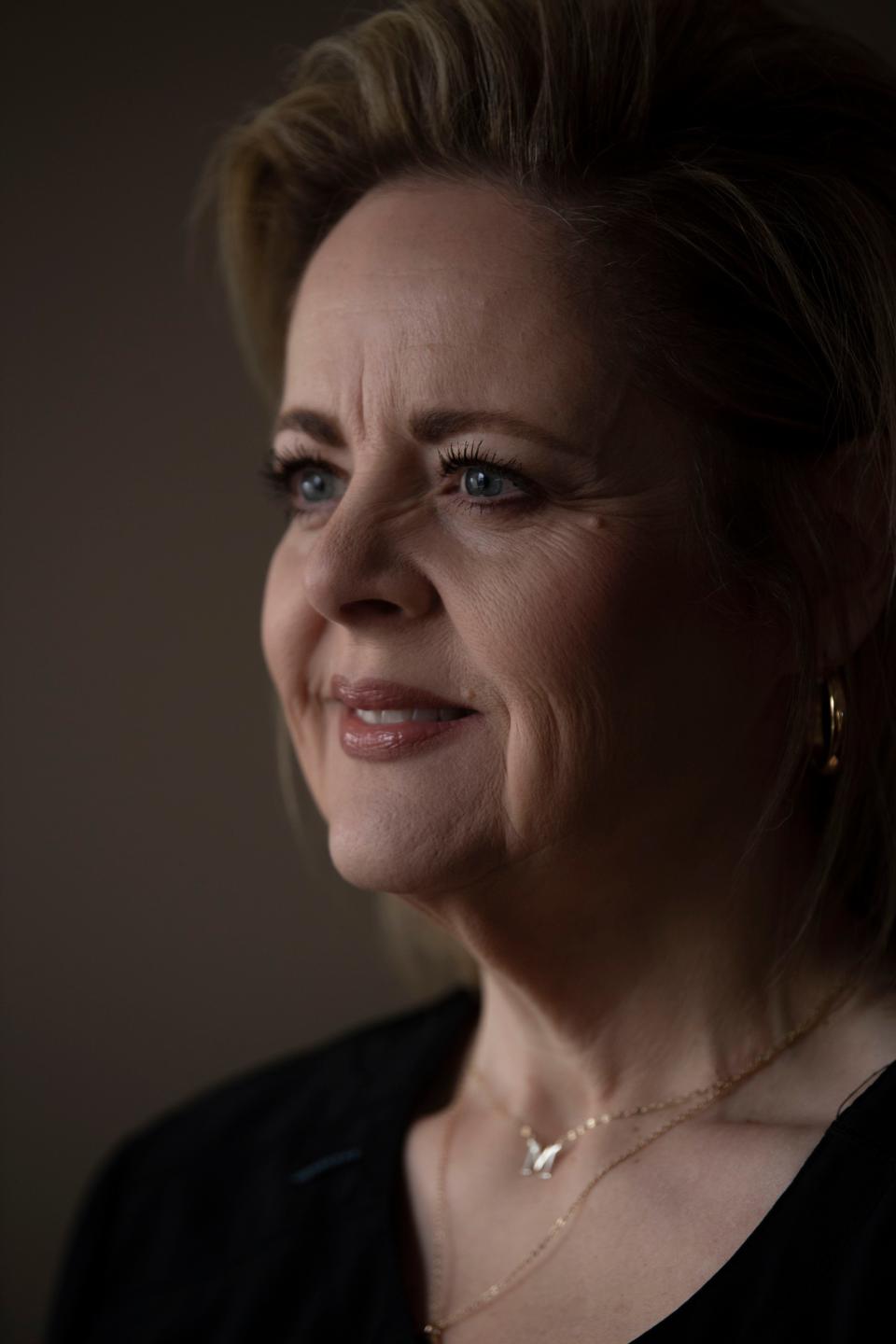From surgery to Ozempic: Losing weight could mean big money but it doesn't have to
Laura Williams-Marcum has had a weight problem for as long as she can remember. The 55-year-old nurse said her sugar addiction was the primary culprit. It started in her childhood and stayed with her into adulthood.
She eventually became pre-diabetic. At her heaviest, the 5-foot 4-inch tall woman weighed 307 pounds.
"That's a little scary," Williams-Marcum admitted. So she underwent gastric sleeve surgery, a procedure that limits a person's food intake. That got her down to 225, but then she started gaining weight again. "It's always been a yo-yo game my entire life."
Williams-Marcum eventually tried a glucagon-like peptide 1 agonist type of drug, the most popular of which is known by the brand name Ozempic. It tamed her appetite. She lost 50 pounds and kept it off.
"I want to stay healthy now. I'm close to my goal weight," added Williams-Marcum, who recently stopped taking Ozempic. "I'm thrilled about it. But I am nervous because your appetite does come back when you're off Ozempic. But I'm also trying to make better decisions and think about where I was and how hard it was to get where I am. I just feel like I have an opportunity most people have and I don't want to waste it."
Like Williams-Marcum, thousands of Americans, if not millions are enthralled by New Year resolutions, and weight loss is one of the most common. In the U.S., the weight loss industry is valued at nearly $160 billion and is expected to nearly double by 2030, according to market analysts.
It's not hard to see why. Gym memberships, surgeries, weight loss supplements, high-tech wearable fitness devices and special diets can add up.

Yet experts say there's no magic bullet, that weight loss requires long-term lifestyle changes and social support. Even emerging drugs such as Ozempic are out of reach for most people.
The out-of-pocket cost for such drugs are often more than $1,200 a month, and most insurers don't cover them for weight loss only, and the long-term effects for such purposes are largely untested. (Vanderbilt Wilson County Hospital, where Williams-Marcum works as a patient experience coordinator, covers it for employees under certain circumstances.)
Dr. Sahar Takkouche, who specializes in diabetes, endocrinology and metabolism at Vanderbilt University Medical Center, tells his patients to stick to a healthy diet, exercise and seek support from friends and family. It's critical to understand that weight loss comes from long-term lifestyle changes, she said, not quick fixes.
"The goal is sustainable health improvement, considering not just physical but also psychological aspects of well-being," Takkouche said. "For those with significant obesity, more specialized interventions may be necessary, and these should be discussed with healthcare providers."
New Year's resolution boom
Joining a gym and getting fit is one of the most common resolutions, surveys show. Though most eventually drop those memberships by the end of the year, studies and surveys show.
According to a recent Finder.com survey, Americans spend nearly $400 million on abandoned gym memberships. Of those who do show up, the survey found, 7.4% only did so once a month.
That survey also found that nearly a third of Americans pay for a gym membership — even if they aren’t using it. But it's not all bad news: Nearly 57% go to the gym at least twice a week. Another 21% go at least once a week.
Nashville gym owner seeing 'a lot of new faces'
Jonny Diaz, the owner of Fit Factory, a gym in Midtown Nashville, is familiar with the New Year's rush.
"It's definitely one of the more crowded times of the year for us," Diaz said. "Our older members seem to have a new motivation to show up. And that's awesome. But we do see a lot of new faces as well."
The same goes for medical professionals.
"The beginning of the New Year is typically a very busy time for weight loss and metabolism specialists," Takkouche said. "Many people are motivated to start fresh with healthier habits, and seeking professional advice can be a crucial step in their journey."

Surgical options
Many, like Williams-Marcum, opt for surgery. But it's not a cure-all. She had to lose weight to qualify and, as she noted, she eventually started to put back on the pounds.
Cosmetic surgery is a multibillion-dollar business. In 2022, Americans spent nearly $12 billion on such procedures, according to industry experts. About 95% of those going under the knife are women.
And interest is high in Tennessee.
More than 10,000 Tennesseans a month Google cosmetic procedures, the Tennessean recently found. Among the most popular searches were Brazilian butt lifts, also known as BBLs, tummy tucks (a procedure to remove excess skin and fat from the abdomen) and liposuction.
Weight loss surgery is considered the best option for severe obesity, according to experts. But, again, for most, weight loss has to be part of a total lifestyle change.
"Behavioral changes, focusing on long-term lifestyle modifications rather than quick fixes, play a critical role," Takkouche said.
Frank Gluck is the health care reporter for The Tennessean. He can be reached at fgluck@tennessean.com. Follow him on X (formerly known as Twitter) at @FrankGluck.
This article originally appeared on Nashville Tennessean: From surgery to Ozempic: No weight loss magic bullet, it can be costly

